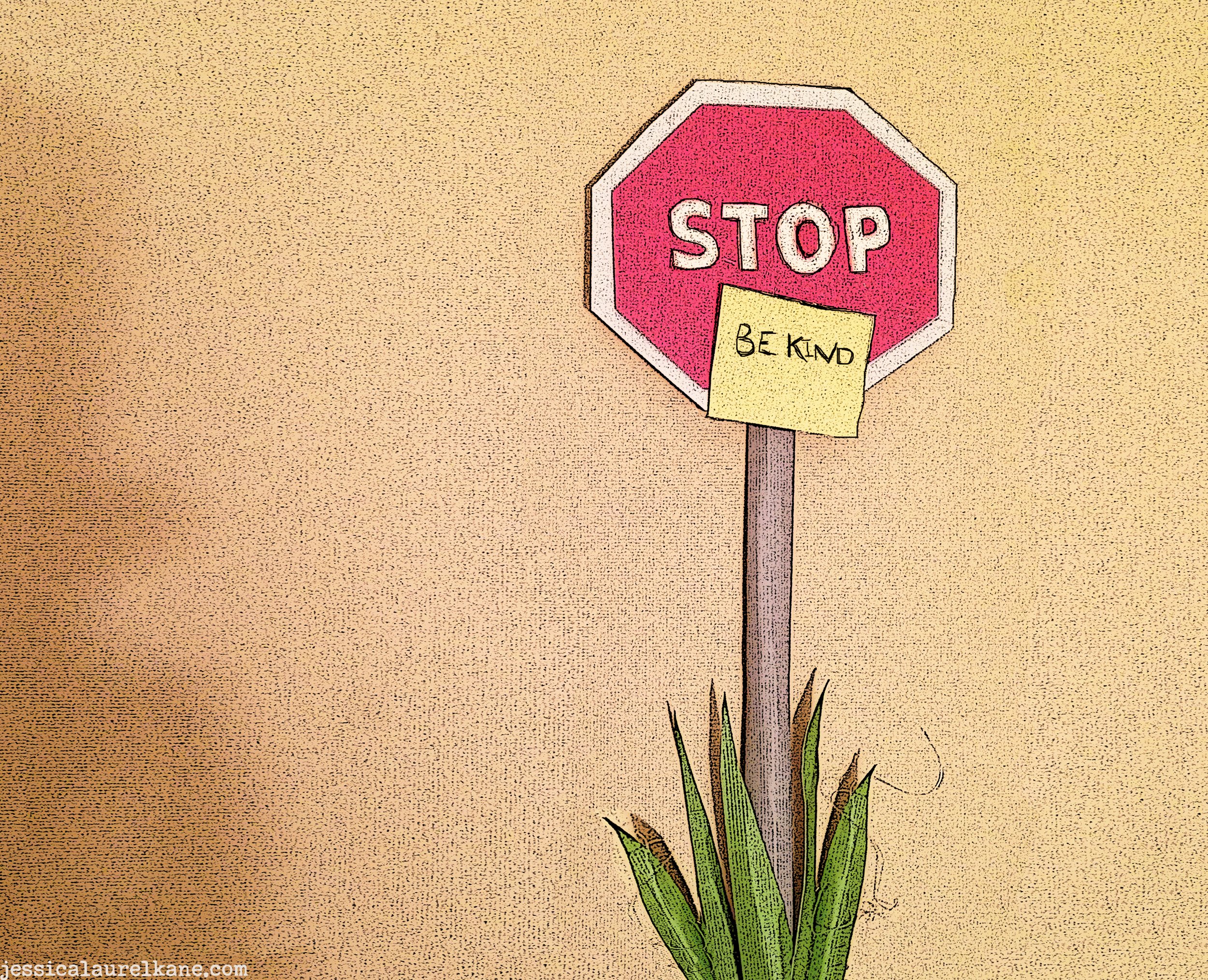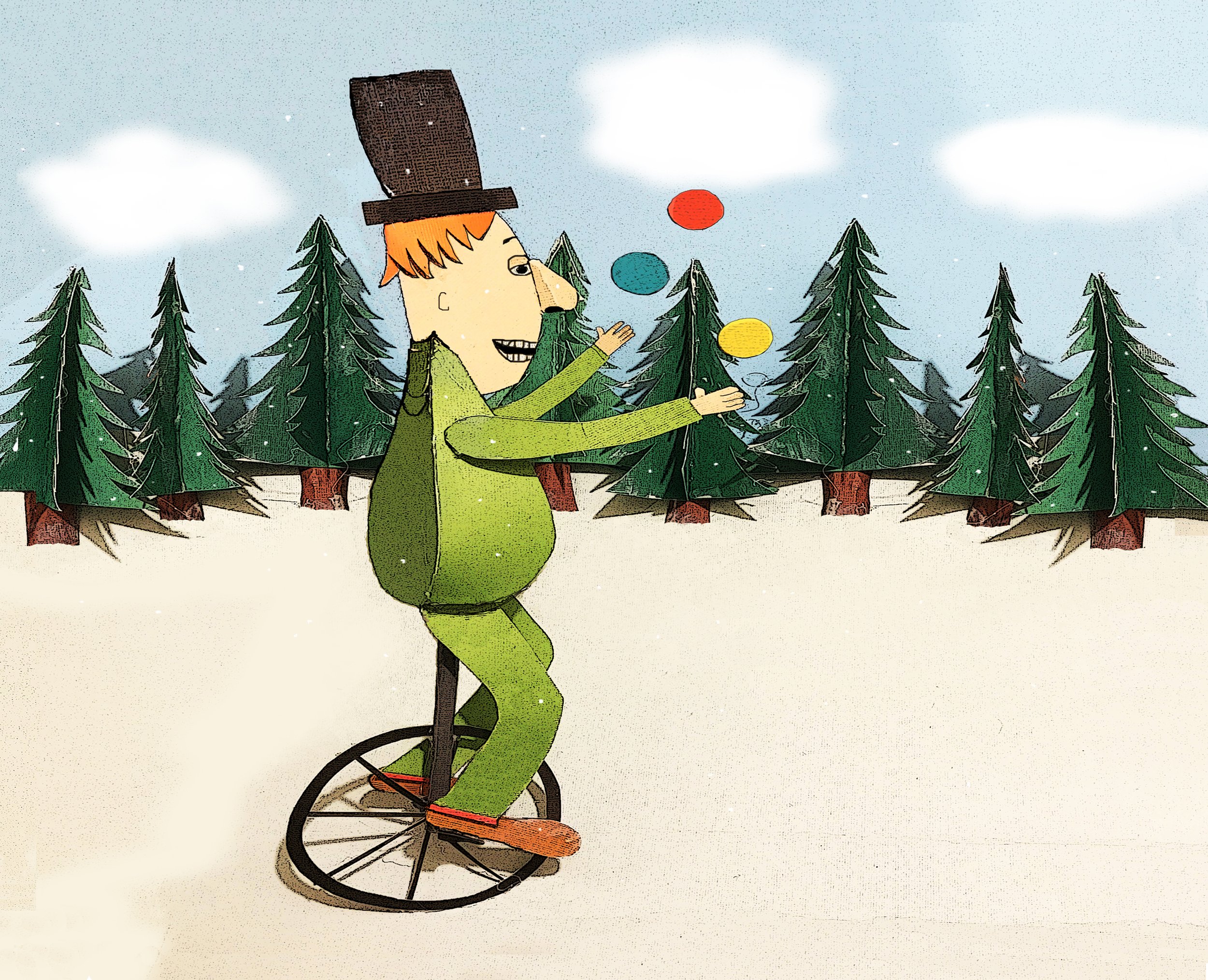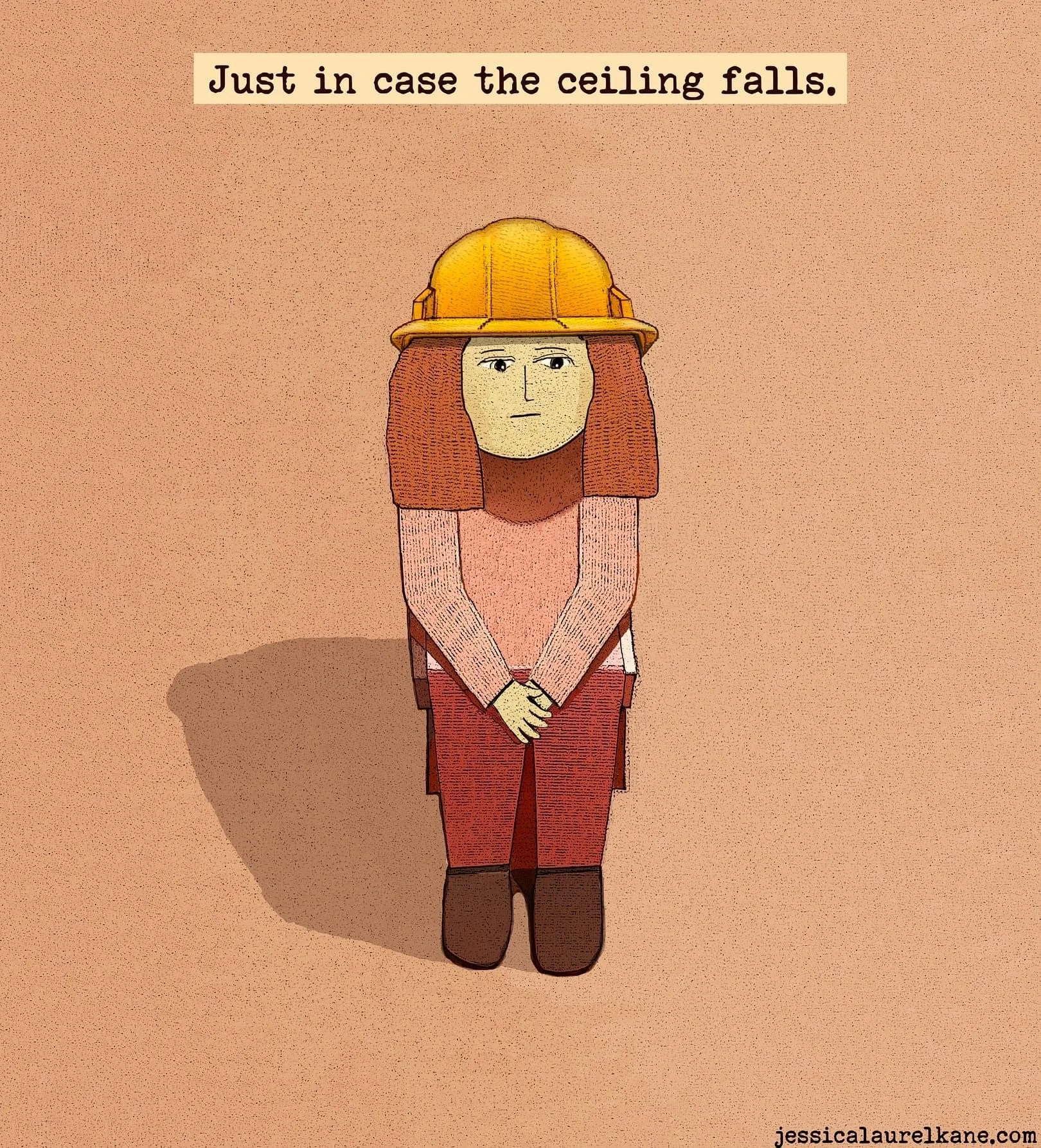Some of the most useful tools I’ve learned, not only to parent my child but to reparent myself, come from Ross Greene’s Collaborative & Proactive Solutions, which in a nutshell, consists of three plans: Plan A, Plan B and Plan C.
In this piece, I’ve written about the three plans based on my own experience and languaging of them, in case it’s helpful for parents who might be feeling frustrated by their kid’s behavior.
Just to be clear, this version of the plans is not what the author intended. But I wanted to pay respect to the source of my inspiration for looking at and addressing conflict through these three lenses: authoritarian, empathetic and with flexibility.
For more precise info on Ross Greene’s Collaborative & Proactive Solutions, see the link at the end of this post. I highly recommend his work.
I like to imagine I have three sets of lenses in my pocket, each with a unique filter to see my child and his behavior.
My Authoritarian Lenses:
When I wear my authoritarian lenses, I’m in charge.
I look at my son’s ‘bad’ behavior and know without doubt that it needs to be fixed. And quick.
I observe my child with judgment and sometimes even contempt, because through my authoritarian lenses, I can’t differentiate my child from his behavior. They’re one and the same.
Sometimes while I’m wearing these lenses, I panic about my son’s behavior and privately catastrophize that there must be something wrong with him, and that if I don’t get whatever it is under control, it’ll probably destroy his future and likely mine as well.
And other times, if I’m in a good mood, I can even add some humor to my authoritarian lenses to make myself sound more loving, like, “Unless you’re planning on being a professional Minecraft player, you may want to do your math.”
Authoritarian lenses are very difficult to remove.
Many of us were raised by adults who wore authoritarian lenses. And life for us kids was all about muscling through expectations and receiving consequences: rewards for compliance and punishment for defiance.
Taking things away was a popular punishment, as was being shamed or called names insinuating something was wrong with us, in voices that spoke louder than our own.
Many of us learned not to tell the truth about our real wants and needs, because we knew in all likelihood that our wants and needs would be criticized.
Or we shared only a modified version of them, after we got caught trying to meet some version of them on the sly.
We knew our ideas and concerns didn’t seem to matter. And because no one ever seemed happy with who we were, we learned to pretend to be whoever we thought the other person needed us to be, to gain their approval which we mistook for love. And, the thought of asking for support never crossed anyone’s mind.
My Empathy Lenses:
When I wear my empathy lenses, as a parent, I am able to see my son through the lens of: ‘What’s going on underneath his behavior?‘
Through these lenses, I understand that it’s necessary to separate my child from his behavior, because I know that all behavior, even the most disruptive or difficult to be with, is actually communication.
With my empathy lenses on, I’m curious instead of critical. I want to understand what my child’s behavior is trying to tell me.
And at the same time, I am able to notice that he doesn’t quite have the skills to communicate-to-be-understood. And because of this, he relies on communicating-to-be-heard, which can be loud, disruptive and often difficult to be with.
But with my empathy lenses on, I can be curious instead of critical. I can begin to wonder why my child might be behaving in this particular way.
Maybe it’s because of some trauma that’s occurred that I’m not aware of.
Maybe he isn’t able to meet expectations because he’s lacking the skills to make meeting these expectations even possible.
Maybe his behavior is a coping mechanism to help him avoid situations or expectations that cause him stress and pain.
Maybe there are kids at school who are mean.
Maybe he’s afraid of being called on in school because he doesn’t know the answers and this embarrasses him.
So, let’s say my son comes home after a bunch of stress at school, and right after he’s settled down, I let him know it’s time to do such-and-such thing, and ‘out of nowhere’ he explodes—opens his mouth and shouts some really hurtful, unkind stuff right at me.
At this moment, I have a choice: If I put my authoritarian lenses on, there’s gonna be an immediate escalation, because with my authoritarian lenses on, I’m not going to be curious about the cause of this ‘awful’ behavior. No way. I’m going to go right into protection mode. Protection over connection mode.
And then I’m probably going to go into audacity mode, because my son is talking to me like that—the son I grew in my own belly?! How dare he! After all I’ve been through!
My other choice, to keep the situation from escalating further, is to put on my empathy lenses, first for myself. So that I can pause before I react and ask myself:
What am I making my son’s words and behavior mean about me?
And then shift to, “What might I make his words and behavior mean about HIS present state of mind?”
In empathy mode, I begin to get curious.
I can look at the stressors around the room, and discover ways to have some empathy.
My son is communicating-to-be-heard about something... But what?
One way to practice empathy is to put myself in his shoes:
Let’s see... if I turn this situation around, how would I feel?
Well, I know that when I’m interrupted by my son’s expectations when I’m in the middle of meeting my own, it STILL takes something for me to stay patient, to not nose-breath all annoyed and stomp up to do it. Especially if I’ve just gotten in an argument with my husband, or just found out something that I wanted to have happen fell through.
But because I’ve been working on understanding my reactions for some time now, I already have some skills to respond to my son in a way that reflects who I’m committed to being in my life, instead of as some scary unregulated grown-up.
But even so, I still have a hard time not reacting. And yet I expect my son, who has done zero work on himself, to have skills that I hardly have? That doesn’t seem like a realistic expectation, nor does it seem fair.
So when I interrupt my son, who’s in the middle of meeting his own expectation, something that soothes him after his own stressful day or moment, and I ask him to meet my expectation that isn’t even of interest to him, and also causes him more stress, how can I expect that he’s going to be compliant?
With my empathy lenses on, I can begin to wonder what my son’s concerns might be underneath his behavior, something like: ‘I’m f-ing frustrated that you’re taking me away from a moment I’m enjoying, to be in a moment I probably won’t enjoy.’
And then I can reflect this to him as a question: “Are you frustrated that I’m asking you to stop doing what you’re enjoying, to do something you’d rather not?” And I can get how that might be really unpleasant.
My Flexibility Lenses:
As I get used to feeling empathy for my child and for myself, I notice I definitely feel a lot better about our relationship.
But there’s still a problem: My kid still doesn’t want to problem solve with me. Even though I get that my expectations for him weren’t very realistic. I’m still not sure how to support him in developing new skills because I’m still not sure what specifically was difficult for him.
And he still isn’t ready to share with me what’s underneath his behavior. In fact, this kid isn’t saying anything.
But before I go and grab my authoritarian lenses and get frustrated, catastrophize, or give up, it’s now time to try on my flexibility lenses. Because through these, I will be able to see clearly that my son is not being defiant, he once again just doesn’t yet have the skills to communicate-to-be-understood.
And saying nothing is actually a good start. After all, he’s not communicating-to-be-heard. He’s not exploding. For all I know, he’s just checking out the new vibe of the space.
Wearing my flexibility lenses is my opportunity to role-model communicating-to-be-understood by saying something like: “I get you don’t have any answers yet. And I know I haven’t been the best listener when you have tried sharing your concerns in the past. I didn’t grow up with listeners, so listening is a skill I’m only now beginning to develop. But I just want you to know that if and when you’re ready to share what’s on your mind, I’ll be here. Because I care.”
If my son’s nervous system is super stressed from repeatedly having his concerns dismissed, I may need to try many times to communicate with my empathy lenses on.
But more importantly, I may also need to help him heal by reducing my expectations. By checking in with myself to see where my expectations even come from.
Do I really care that my son perform so many tasks, and perform them so well? Even at the expense of his mental health?
Didn't I used to complain as a kid that the adults were always waiting for me to do something impressive while I was just trying to be myself?
Don't I want my child to feel like it’s impressive enough to be alive and experience himself being alive without my needing to assess his ingredients to see if they qualify?
In my experience, flexibility is empathy-in-action. It's the opportunity to modify environments to reduce the stressors that may be preventing my child from experiencing the peace and calm that make self-regulating possible. And doing so until the child no longer seems like he’s in a state of acute stress.
And if the thought of that makes you want to reach again for your authoritarian lenses, I hear you. But understand that by being flexible with your child, you are role-modeling compassion.
In my family’s case, it turned out there were a lot of stressors that were traumatizing my son because he simply didn’t have the skills to cope with them, and my lack of flexibility prevented me from seeing it.
So we wound up making the difficult decision to remove many expectations around school, chores and screen so that his nervous system could reset and so he could have a say in what kinds of expectations he wanted to set for himself.
And it’s been really interesting. To give you one example of progress—my son, who refused to write and practice spelling, now types faster than his dad because he learned the way he wanted—through chatting with his friends on Minecraft. And he’s really proud of himself. And because he now gets that his concerns matter, our upsets rarely escalate, because he knows now that we will listen to his concerns and find a solution that works for everyone.
Shifting lenses is such a powerful way to understand and connect with our children, and it’s also a really powerful way for us parents to consider how we were raised, and to check in with ourselves to see if there are any unresolved upsets or blind spots that are getting in the way of the kinds of relationships we want in our lives.
In conclusion:
One day, I was walking around my house, and I heard my own voice speaking to myself:
Are you seriously having another cup of coffee?
Didn’t you say you were going to finish your memoir this month?
Do you have a plan for dinner yet?
How long before you get dressed? Jesus.
Etc. etc.
And that’s when it occurred to me that I had become my own authoritarian parent. The voices of my parents and teachers really had become the voice I was using to speak to myself.
And I realized: How am I supposed to wear the empathy lenses for my son while I’m wearing authoritarian lenses for myself?
I realized to heal my child, I had to heal my relationship with myself.
I needed to practice asking for support. And practice modifying my environment to help myself meet expectations in a way that felt like an opportunity rather than a punishment. To take time to understand what’s been unresolved from my own past and how that’s contributed to my own frustrations. And to have compassion for myself and what my own concerns are moment-to-moment, so that compassion can be my motivation to problem solve.
Seeing my son through the lens of empathy turned out to be an unexpected opportunity to heal myself and also my marriage.
Honestly, it was only after my husband and I began to do the work, that we were even in a position to support our son.
Having compassion for myself role-models compassion for my son. Which will hopefully be the lenses he wears for himself, and in time, for the others in his life.
That’s not to say I don’t make mistakes. I make mistakes every day, multiple times a day. In fact if I had a name for my style of parenting, I’d call it ‘repair parenting.’ But the way I see it, each repair is an opportunity to put on my empathy lenses and practice connecting with myself and with my family through a deeper understanding and a deeper appreciation of all we’ve been through.
-JLK
Link to more info on Ross Greene’s work:
https://www.cpsconnection.com/
Also, here’s a piece I wrote explaining in more detail what I mean by communicating-to-be-heard and communicating-to-be-understood:
https://bit.ly/3HQjRMb



















